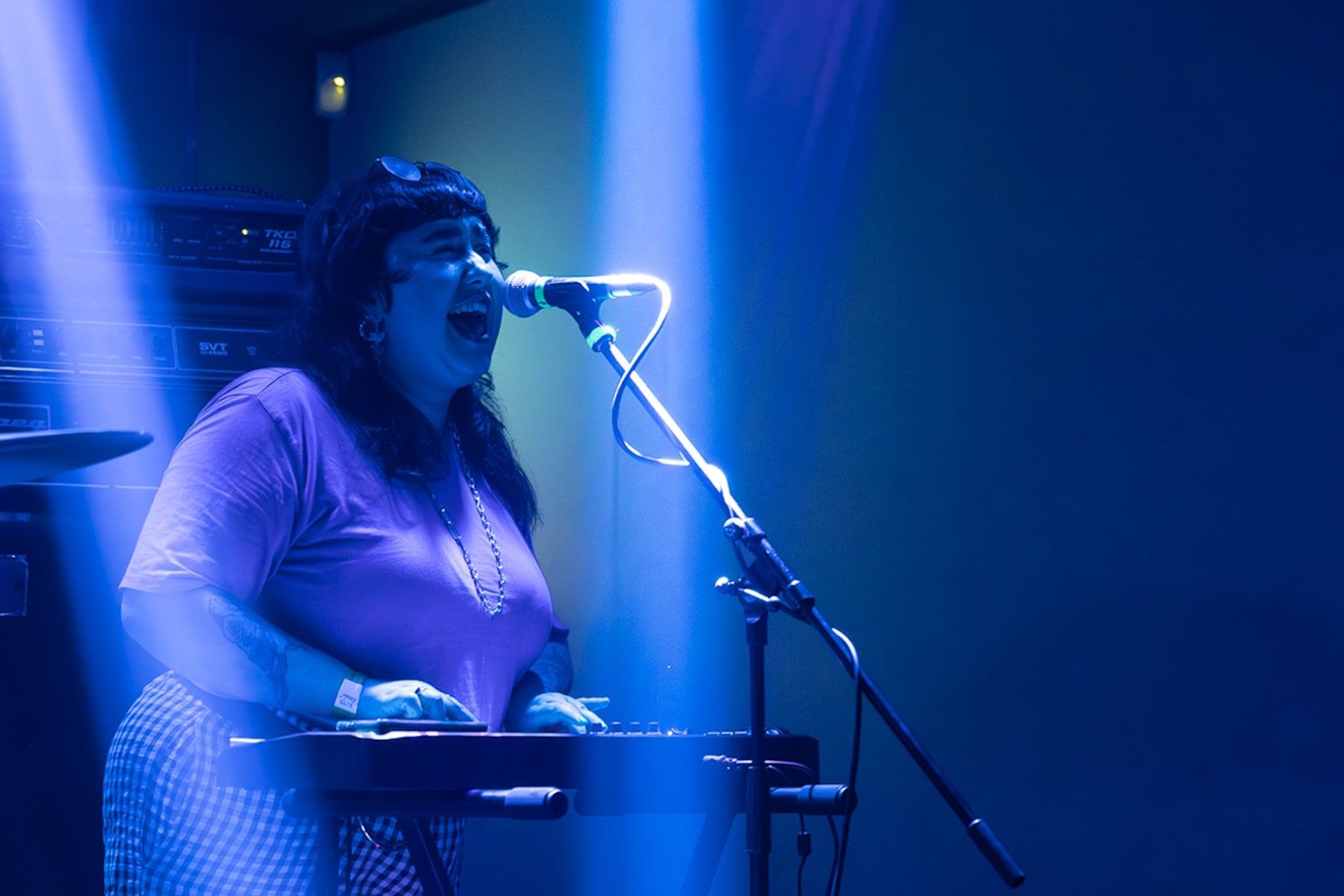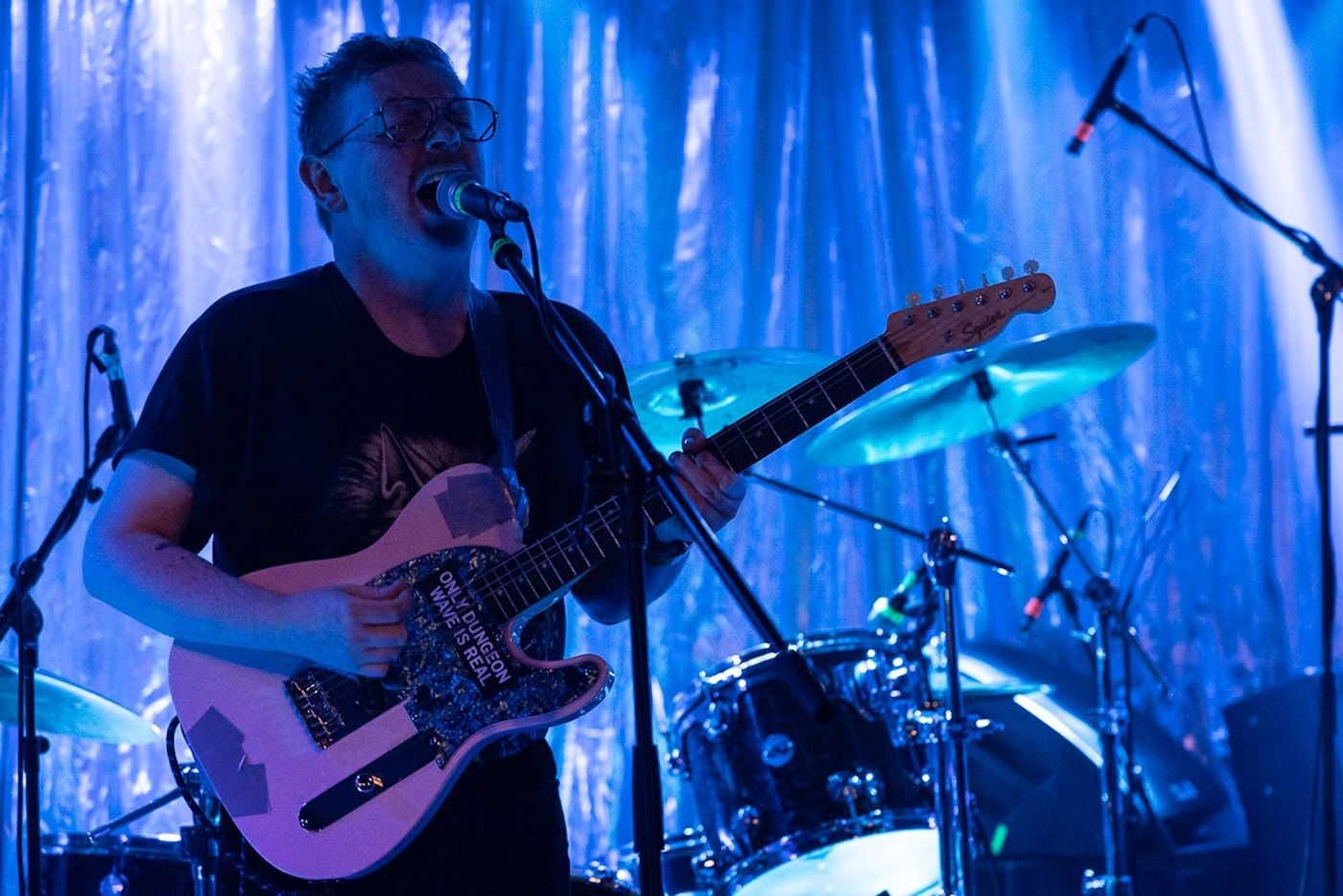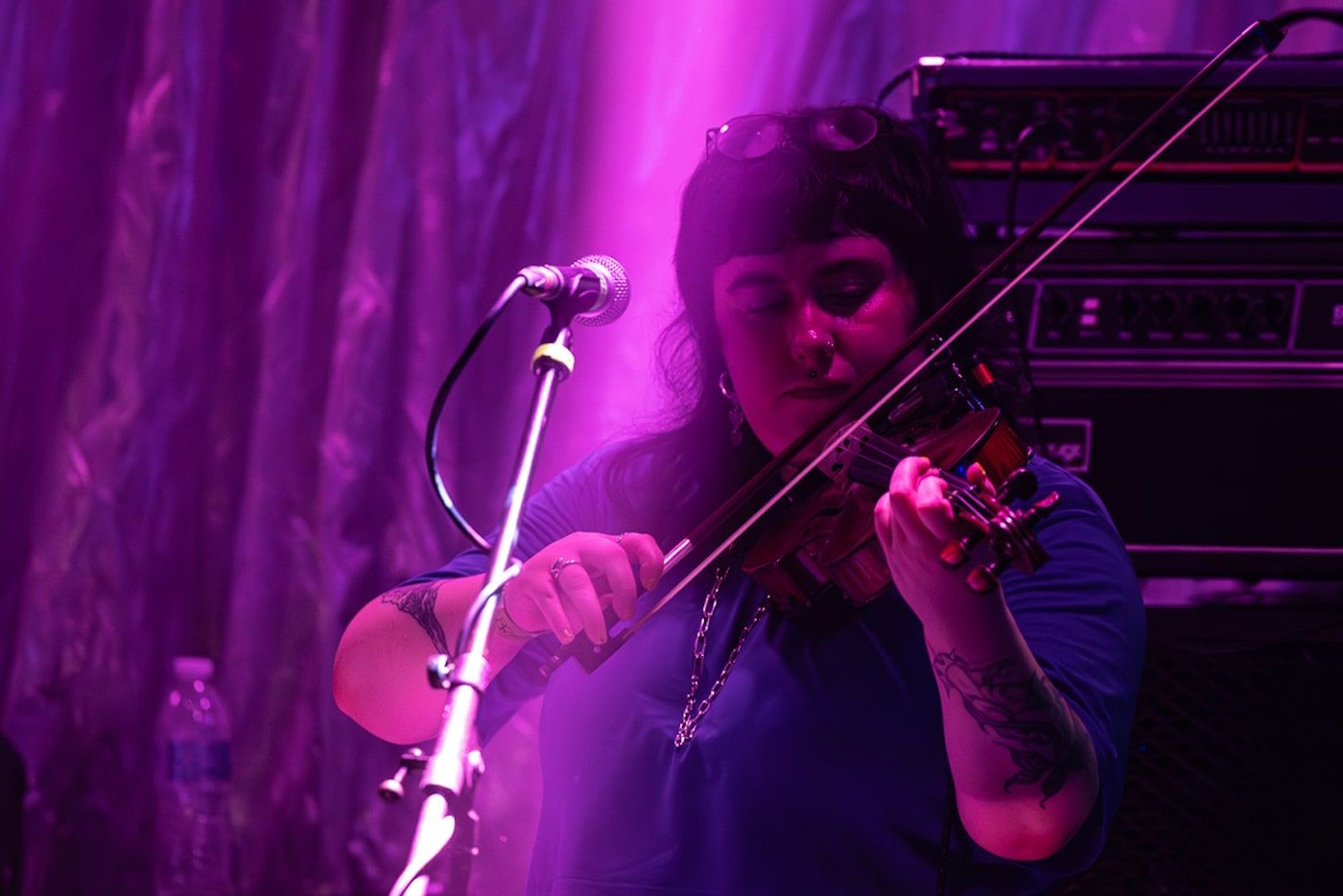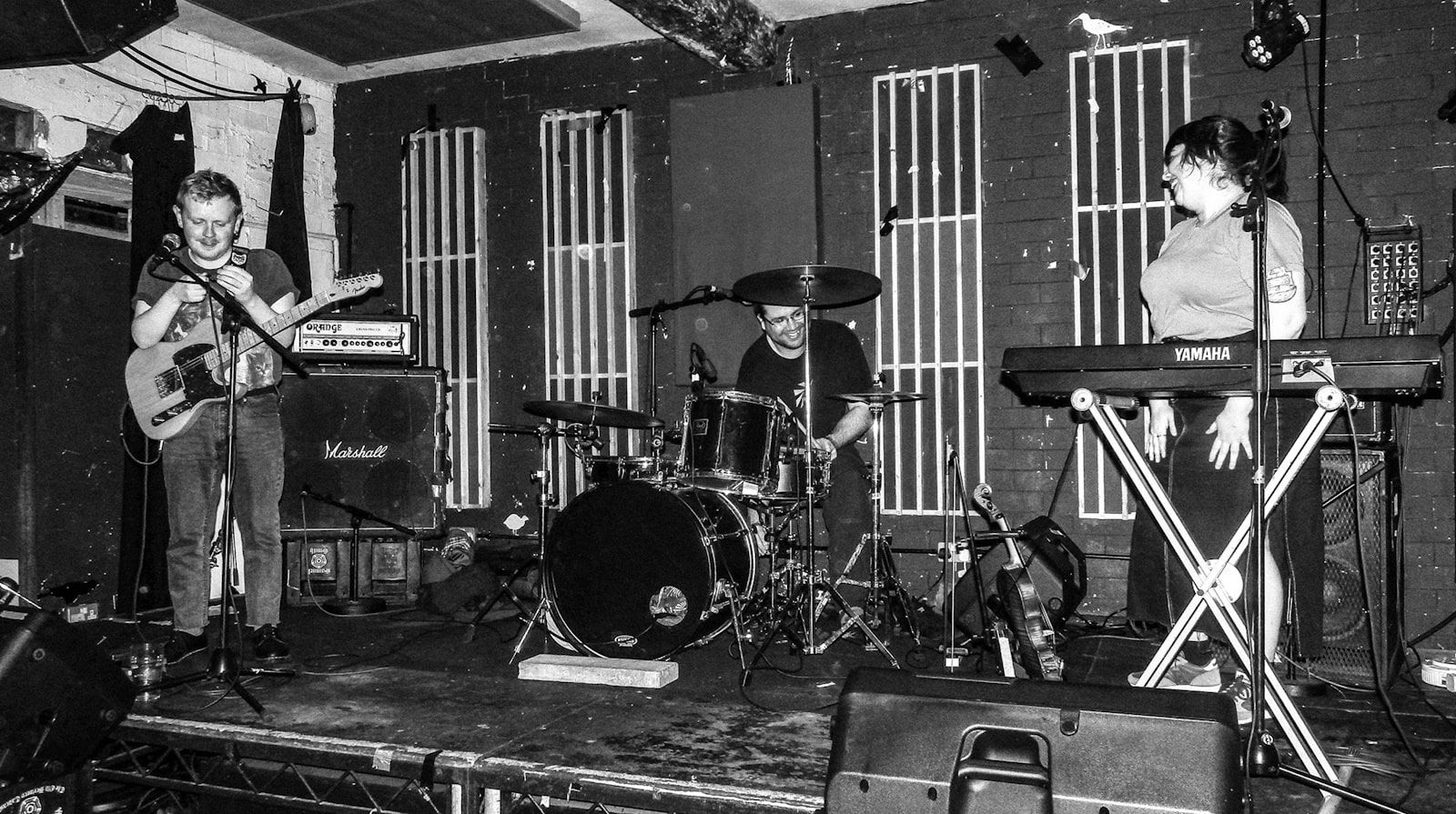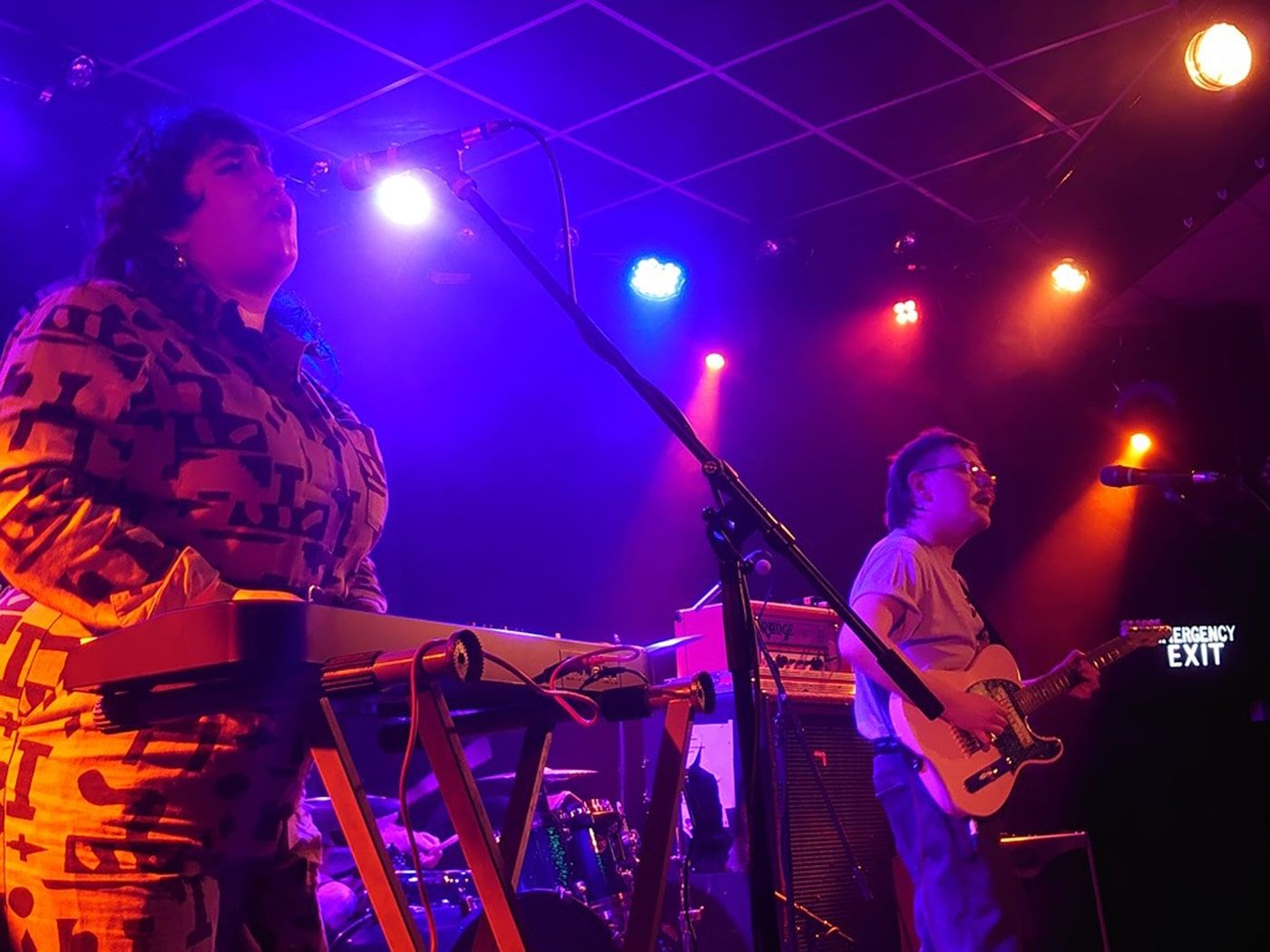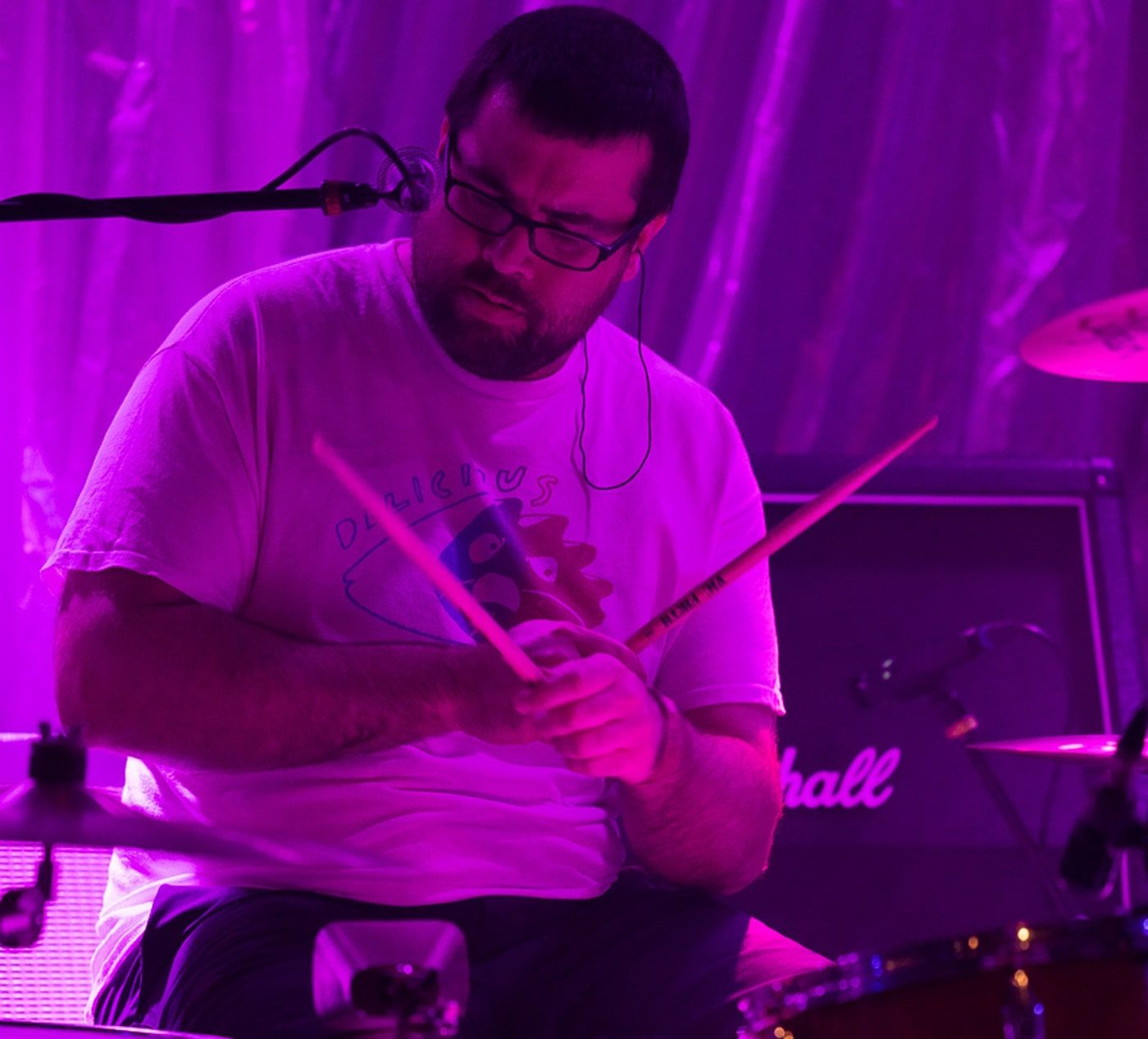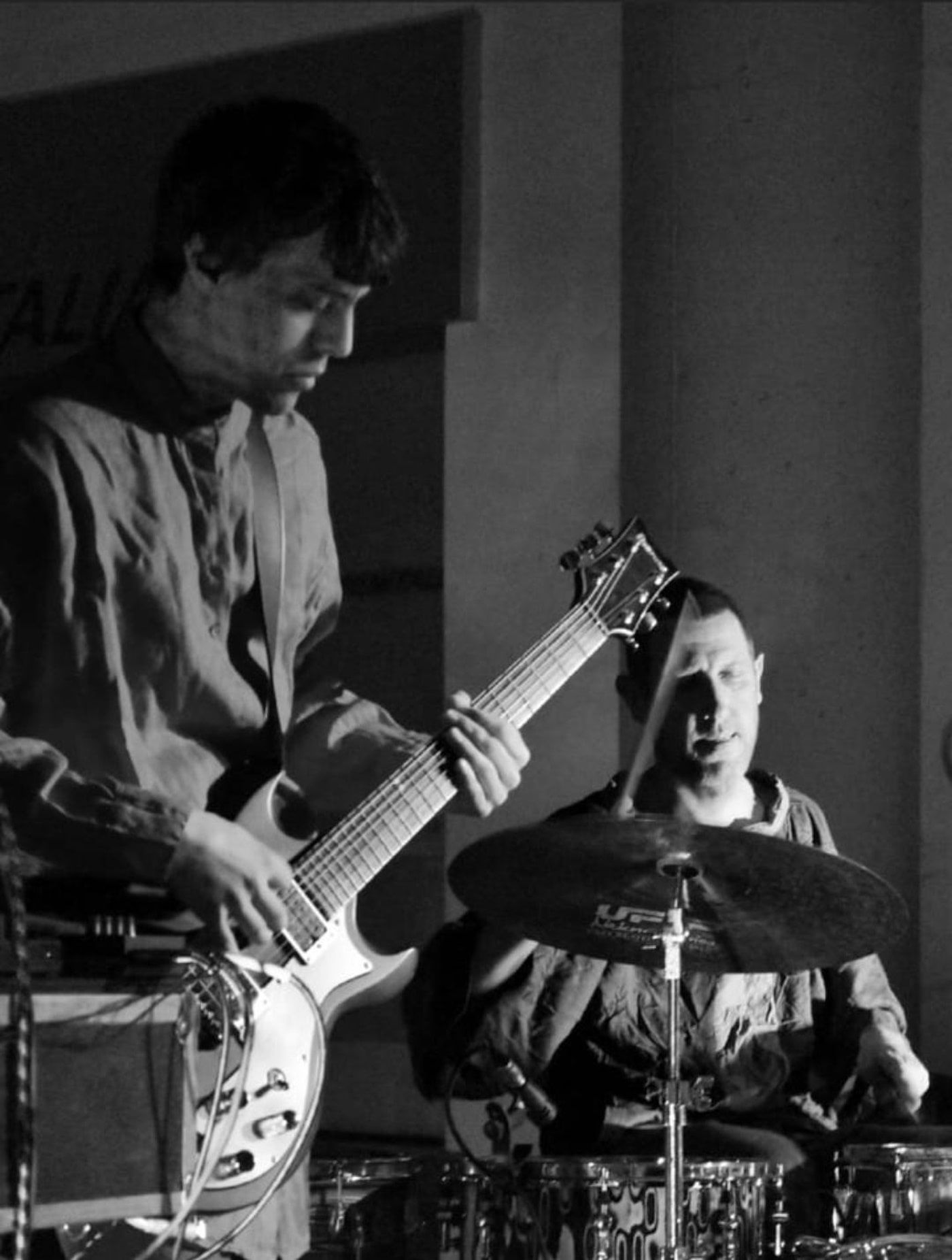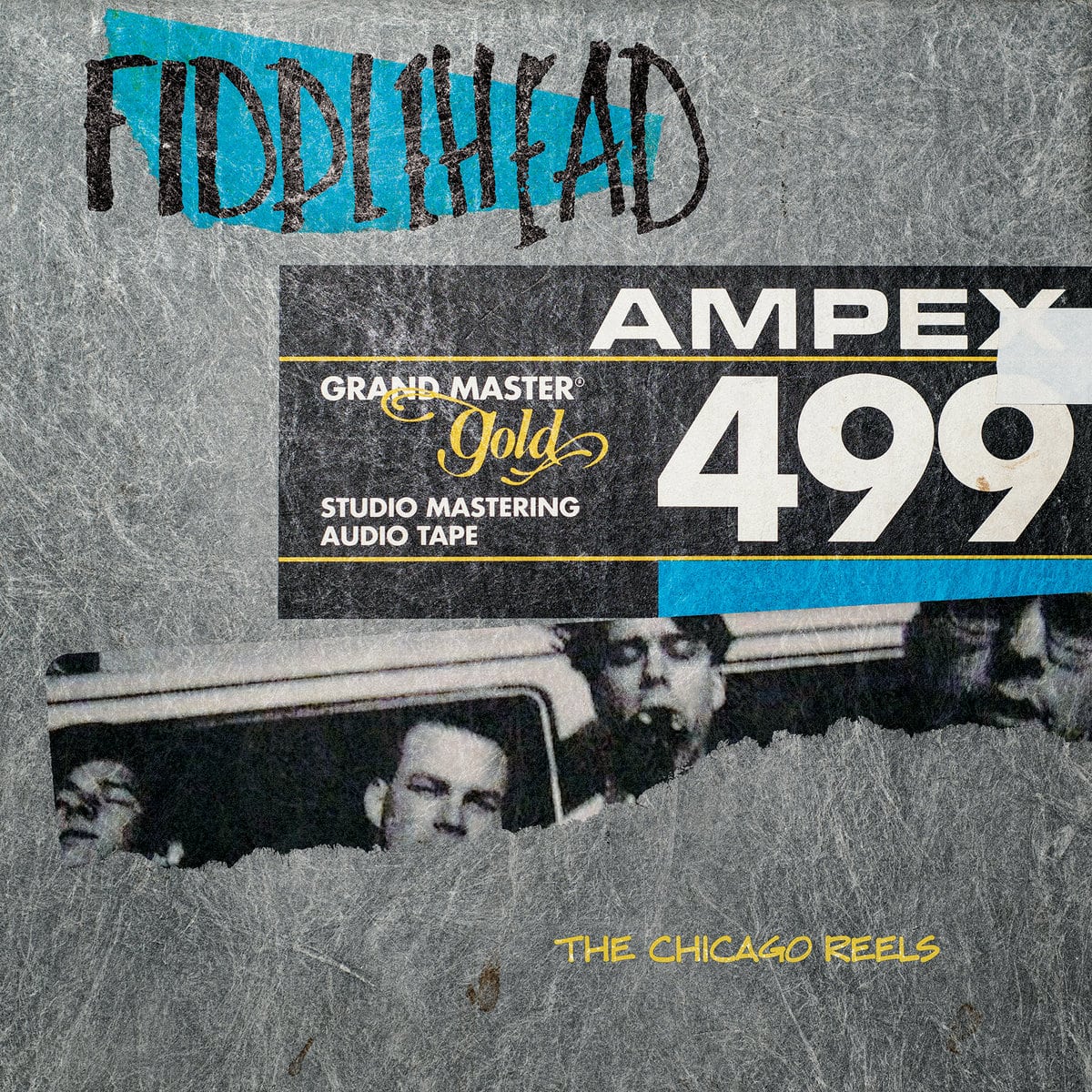In the intricate mosaic of today’s under the radar music scene, Beige Palace stands as a fascinating piece, radiating an ethos of minimalist rock tinged with an experimental flair. Today, we are thrilled to bring to you an in-depth interview with this Leeds-based trio, whose latest album ‘Making Sounds For Andy’ is a multifaceted journey into sound and emotion.
Beige Palace, comprising Freddy Vinehill-Cliffe (Thank), Kelly Bishop (Gloomy Planets), and Ant Bedford (Cattle), navigates through the realms of noise rock, math rock, post-hardcore, and beyond, painting auditory landscapes that defy conventional structures.
Their second full-length LP, released by Human Worth, is a narrative threaded with straightforward rock elements on the surface, yet reveals deeper, more intricate layers upon closer listening. The album, a blend of linear drum patterns and asymmetrical rhythms, is as much a nod to folk-inspired perpetual canon as it is a leap into avant-garde territory.
In our exclusive interview, we delve into the creative minds behind Beige Palace. We explore the story behind the album’s intriguing title, the balance between improvisation and structure in their music, and the inspirations driving their songwriting process. Freddy, Kelly, and Ant each bring their unique musical backgrounds to the table, culminating in a sound that’s both distinct and cohesive.
The interview also sheds light on the local Leeds music scene, a vital influence on the band’s creative output, and the role of music in today’s digitally-saturated world. Beige Palace’s commitment to advocacy is evident in their partnership with PAFRAS, with a portion of their album sales supporting this important charity.
Your new album title ‘Making Sounds For Andy’ provokes curiosity. Could you share the story behind this intriguing title and who Andy is?
Freddy (guitar/vocals): “Andy” has been an affectionate nickname for our drummer Ant for almost the entire 8 years we’ve been a band. I could try to explain why, but it would probably make you lose all respect for us. We came up with the album title during a brief obsession with the XTC song ‘Making Plans For Nigel’, and I’m sure you can connect the dots!
With your latest album offering more straightforward structures at first glance, was this an intentional move to perhaps challenge the listener’s expectations as they dive deeper into the more complex layers of your music?
Without wanting to be obtuse, I’d say the intention behind most Beige Palace songs is simply to play something fun. Whenever we’re trying to decide what should come next, our first thought is pretty much always “what would be fun to play here?”. Working on this album I felt like we were writing a collection of pretty straightforward rock songs – I didn’t realise quite how wonky and labyrinthine it was until we got into the studio. I said to our producer Rob “don’t you think these songs are so nice and simple compared to the last album?” and he had no clue what I meant.
The structure of ‘Making Sounds For Andy’ seems to reflect a deliberate architectural design. How do you balance improvisation with structure in your music creation?
There has always been an element of improv in our music, but clearly we aren’t on the level of like… jazz improvisers. If we want to improvise and for it to sound good, we need to set some relatively narrow parameters for ourselves. That might mean having a section of indeterminate length, with a defined repetitive pattern and a certain “nod” to signal we’re wrapping up, like the end section of ‘The Depraved Beast’.
Or it might mean having a section where the lyrics are fairly rigid but the rhythm and melody is subject to change, which is the case in some parts of ‘Useful Idiot’ and ‘Local Sandwich’.
‘Making Sounds For Andy’ shows a lot of structural inventiveness. How do you approach songwriting to keep pushing the boundaries of what your music can be?
Although we’re only a three-piece, I think we’re lucky to have quite a wide palette of sounds to choose from. All three of us sing, there’s no lead vocalist, and Kelly switches between violin and keys.
The fact that there’s only three of us means there’s a limit to how many sounds we can have going on at the same time, so we’re kind of forced to be inventive with different ways of layering and combining those sounds.
Your music has been described as a ‘kaleidoscope of noise’. What inspires you to blend such diverse genres, and how do you ensure these elements coalesce into a coherent sound?
I think if someone was being uncharitable they could quite easily say we’re just throwing a bunch of shit at the wall and seeing what sticks. There’s kind of an alchemy to it – somehow, almost regardless of what disparate elements we bring in, as long as it’s the three of us in the room together it always sounds like Beige Palace.
The minimalist approach to rock is not often trodden. What led you to adopt this method, and how does Steve Albini’s ethos resonate with your musical ideology?
Prior to us forming Beige Palace, I had only ever really played in bands where the focus was on volume and intensity, so when we first started jamming together I wanted to do something at odds with that. Around the same time Kelly had introduced me to This Heat’s self-titled album and ‘Leaving Our Homes’ by Candies.
For me, those two albums formed the basis of what we were trying to achieve. It wasn’t until a couple of years later that I read someone describing Steve Albini’s band Shellac as a “minimalist rock trio”, and I realised that description suited us nicely too. As time has gone on, we’ve gradually become much less stripped back than we once were, but I still like the description.
Kelly, your artwork graces the album sleeve of ‘Making Sounds For Andy’. Could you describe your creative process for the artwork and how it reflects the music within?
Unfortunately Kelly wasn’t available to contribute to this interview, but you can check out her Instagram @kellyvbishop for some insights into her creative process. Something I love about everything Kelly creates is that it all has a through-line, she has a really distinctive artistic voice. Her illustrations, her sculptures, and her lyrics – both in Beige Palace and in our old side-project Puddin’ – all link together thematically. It all fits into this murky, forthright, post-industrial kind of surrealism.
Can you share a particularly memorable moment from the recording sessions that encapsulates the spirit of this album?
One of my favourite things about recording with Beige Palace is that we tend to record all of our vocals in the same room at the same time. It becomes a really fun communal experience, and I think it brings a different dynamic to the takes. Ultimately I think we want the sound of a Beige Palace album to be the sound of three friends having fun together, and on the vocal takes it is exactly that, in a very literal sense.
Freddy, Kelly, and Ant, coming from different musical projects, how does each member’s unique musical background influence the creative direction of Beige Palace?
The first time I jammed with Ant, I was honestly just trying super hard to come up with guitar parts that sounded like his old band Magnapinna. I guess I was hoping to impress him. There’s a Magnapinna song called ‘Pretend To Convert’ and I think you’d be surprised to learn how much of our creative direction over the years has been led by me trying to write something as cool as that song.
I do also know that Beige Palace was the first band Kelly had ever joined, which I think gives her contributions a unique energy because she’s unencumbered with the baggage a lot of people end up with from playing in a whole bunch of bands.
Leeds has a rich history in producing innovative music. How does the local scene influence your work, and could you give us a snapshot of what it’s like to be a part of it today?
I already knew about DIY punk from reading things like Michael Azerrad’s ‘Our Band Could Be Your Life’, but probably the first time it felt like something I could access myself was when I was around 15 years old and I discovered Leeds bands like Pulled Apart By Horses and Cowtown. I grew up in Halifax, so having what seemed like a really exciting DIY scene 40 minutes down the road in Leeds kind of blew my mind. The very first PABH demo on MySpace was one of the most exciting things I’d ever heard at the time.
Pretty soon after I heard that demo, someone booked Cowtown to play above a pub in Halifax town centre, and my teenage band got asked to open. The entire way they operated as a band felt like a glimpse into another world, and I became pretty obsessed with the Leeds DIY scene for several years before I eventually moved here in 2014. What feels really crazy is that a lot of those people are still around in the scene, and I think it’s fair to say they’re now peers of ours.
What does the act of making music mean to you in the context of today’s world, which is often saturated with digital and instant media?
It’s easy to be cynical about the social media age, and there are certainly things I dislike about it, but ultimately I think that all pales in comparison to how amazing it is for creative people all over the world to communicate and collaborate so easily. It’s pretty unreal to share my music with people in other countries who I would have never otherwise spoken to.
How do you reconcile the intensity and complexity of your live performances with the more constrained nature of studio recordings?
Kind of on the contrary, I actually think more than any other band I’ve played with, our recordings are a very accurate representation of our live performances. This music is stark, dry, and pretty much no frills, and I think that’s the case both live and in the studio too.
The charitable aspect of your vinyl sales is commendable. How did the partnership with PAFRAS come about, and why is their cause important to you?
Our label, Human Worth, is run by a tremendously generous bloke called Owen who donates 10% of the profits from every single one of his releases to charity, so we can’t necessarily take credit for the charitable aspect as a whole. However, we chose PAFRAS – a Leeds-based charity supporting destitute refugees and asylum seekers – for this release. It’s an especially hostile time to be a refugee or asylum seeker right now, and PAFRAS is close to our hearts because they’re based in our city.
With a portion of sales going to charity, music seems to be a platform for advocacy for you. Could you discuss how you view the role of artists as activists or advocates in society?
I’m not necessarily an advocate of bands writing overtly political songs. There are plenty of overtly political bands I love like Crass or Downtown Boys, but what I mean is I kind of resent the idea that songwriting itself has to be overtly political, especially since so much political songwriting ends up being pretty ineffectual and self-congratulatory.
With that said, I do think that music as a whole is inherently political, and in the DIY scene I think this is something we should be especially conscious of. Political dynamics are at play in every space where music is performed, even down to something as simple as where people with different identities and backgrounds feel comfortable standing in a crowd.
We are a political band, and plenty of our songs do have political meanings behind them, even if it isn’t overt sloganeering. On this album I think ‘Local Sandwich’, ‘Waterloo Sublet’ and ‘Useful Idiot’ are the most illustrative of that.
Lastly, what is the band’s ultimate ambition with ‘Making Sounds For Andy’, and what do you hope listeners will take away from this album?
I don’t think we’re a band with intentions to climb to a certain level of fame or success. Our main ambition is probably just to always enjoy what we’re doing, and if we stop enjoying it then we’ll stop doing it.
I hope people will have fun listening to the album and, if this isn’t wishful thinking, I hope some people will feel inspired to start bands of their own.



